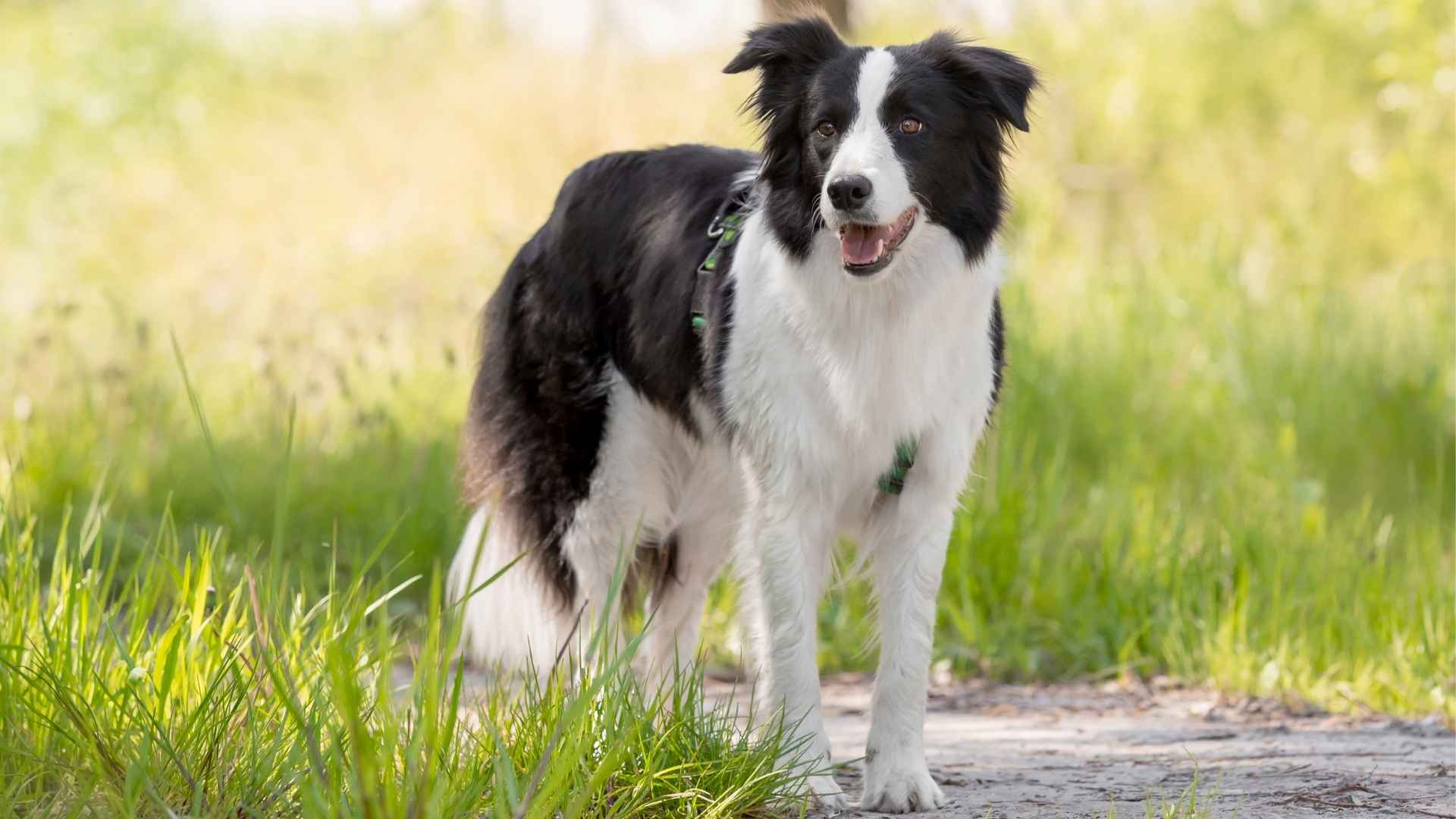Let’s face it: vet visits are nobody’s favorite outing—especially when your dog’s acting perfectly fine until you get to the clinic. While all dogs need some care for health issues such as heart disease, cancer, orthopedic issues, and allergies due to their genetics, some breeds are just blessed with robust health.
They skip the frequent prescriptions, dodge the chronic conditions, and generally avoid the medical drama. If you’re looking for a loyal companion with a lower chance of racking up those vet bills, you’re in the right place.
Here, we’ll spotlight dog breeds known for their solid genes and natural vitality. These are the sturdy pups—the Labrador-esque legends and the tough-as-nails terriers—who seem to shake off the sniffles with a tail wag.
Of course, every dog is different, but some breeds just have a reputation for aging gracefully and dodging health issues like pros. Whether you’re a first-time dog owner or just someone who prefers peace of mind with your pet, this list will help you find a breed that’s easy on your heart and your wallet.
Dog Breeds That Rarely Need Meds
1. Belgian Malinois
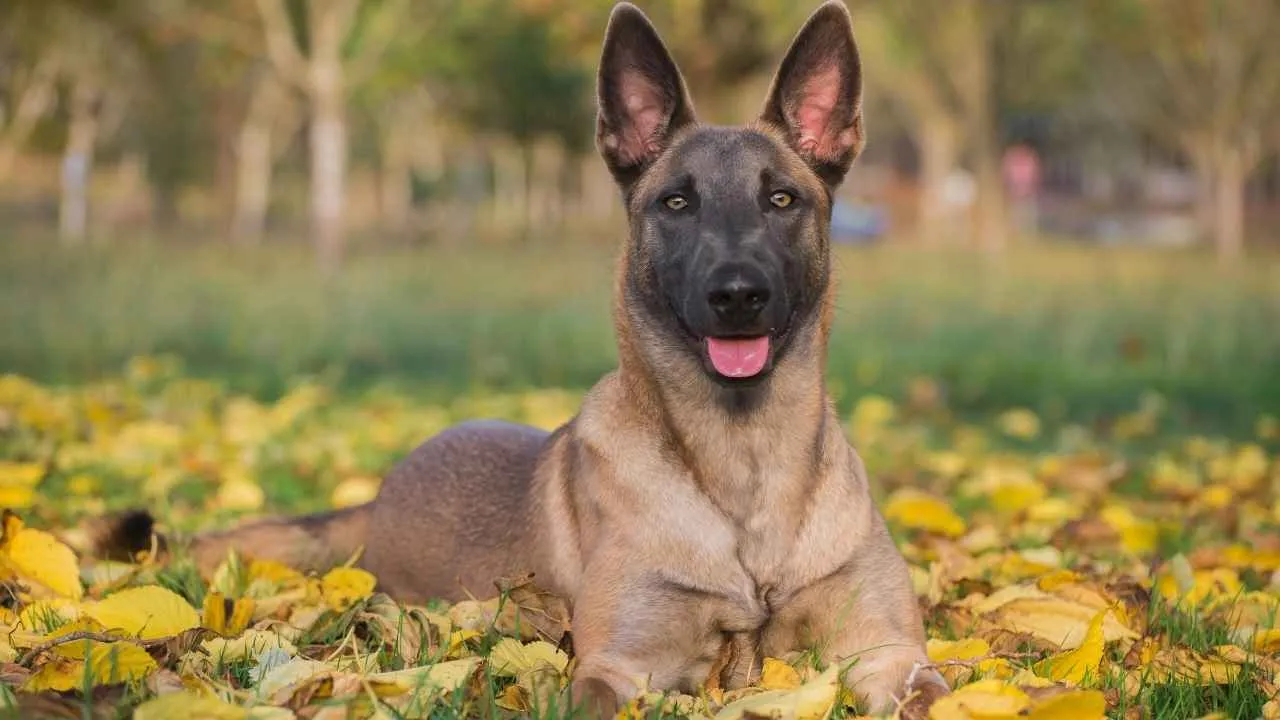
Belgian Malinois aren’t just the superheroes of the dog world—they’re also tough as nails health-wise.
Originally from Belgium, the Malinois is one of four varieties of Belgian Shepherd dogs. Known for their striking fawn coat and black mask, these medium-sized dogs look sharp, almost like they’re wearing a permanent little superhero mask. And honestly? They kind of are.
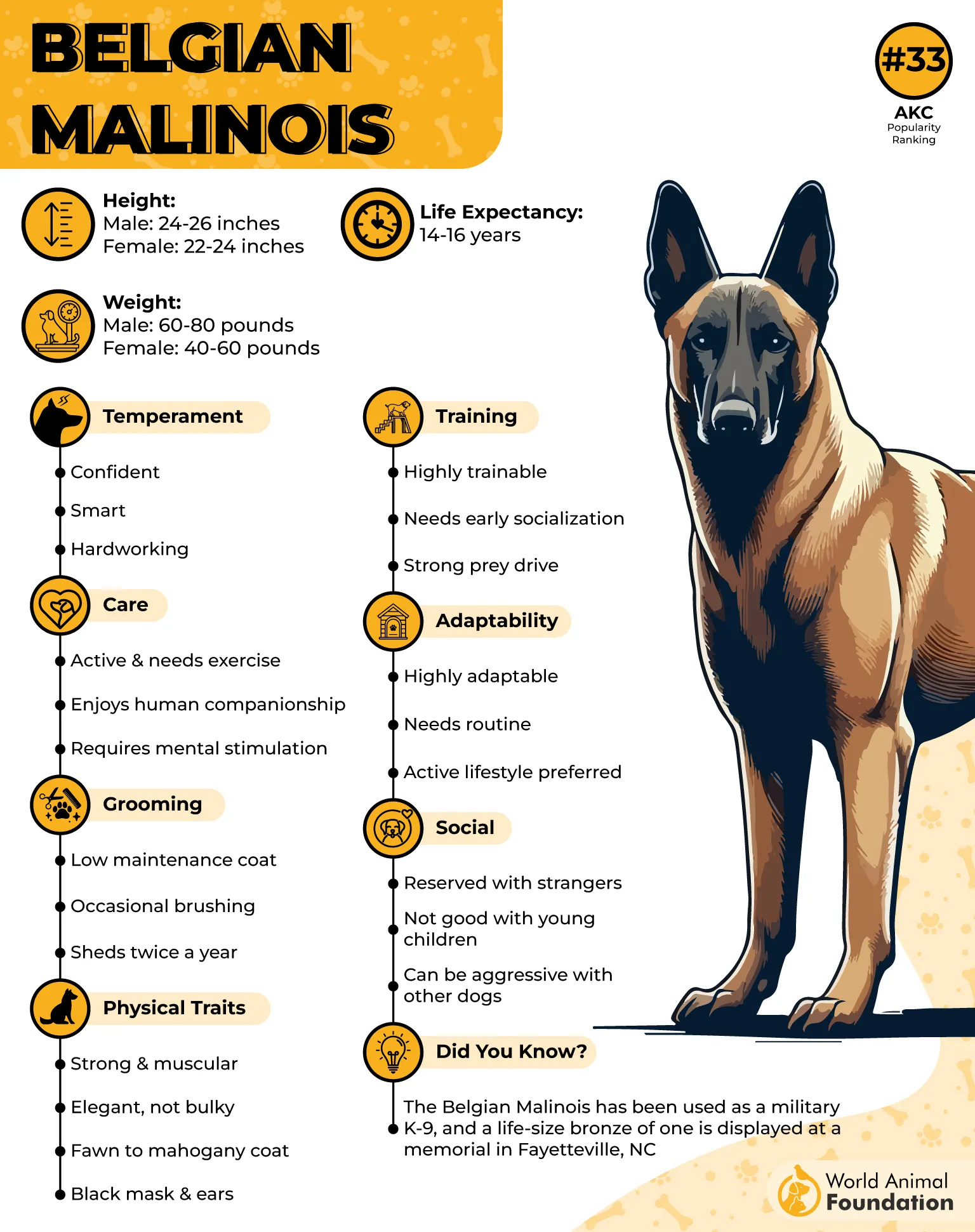
These agile, high-energy dogs come with a sturdy constitution that means vet visits are usually for checkups, not meds. Compared to many other breeds, Belgian Malinois generally have few health problems, particularly when coming from a responsible breeder.
Their genetics give them a leg up on health problems common in other breeds, so they’re more about action than medication.
Loyal, protective, and sometimes a bit intense, Malinois are best suited for experienced dog owners who know how to channel their energy positively. They thrive on purpose and companionship.
Why they rarely need meds:
Rock-solid genetics for fewer hereditary issues
High activity levels promote overall wellness
Built to withstand tough jobs with minimal downtime
Plus, their dedication to work—whether it’s police, military, or just intense play—keeps them physically fit and mentally sharp, which is the ultimate recipe for a healthy pup. Just keep their brains busy and their bodies moving, and you’ve got a low-maintenance health champ.
Warning: these dogs have a nearly endless battery pack. Without proper daily exercise and mental stimulation, they might turn your furniture into a chew toy or invent creative ways to escape the backyard.
2. Bichon Frise
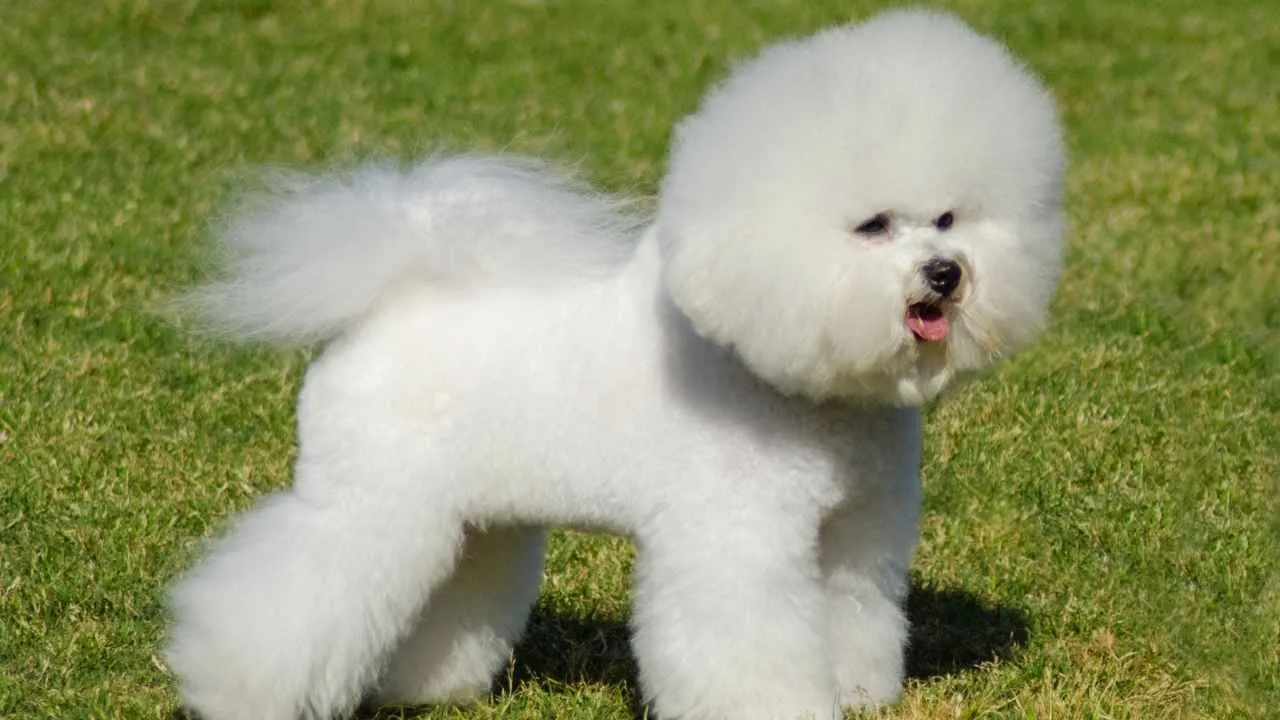
Don’t let the Bichon Frise’s fluffy, cloud-like white coat fool you — this little ball of joy is surprisingly hardy. Their coat is soft, dense, and curly, almost like a perpetual snowball that never melts. They’re a small size, which makes them perfect for cuddles and laps.
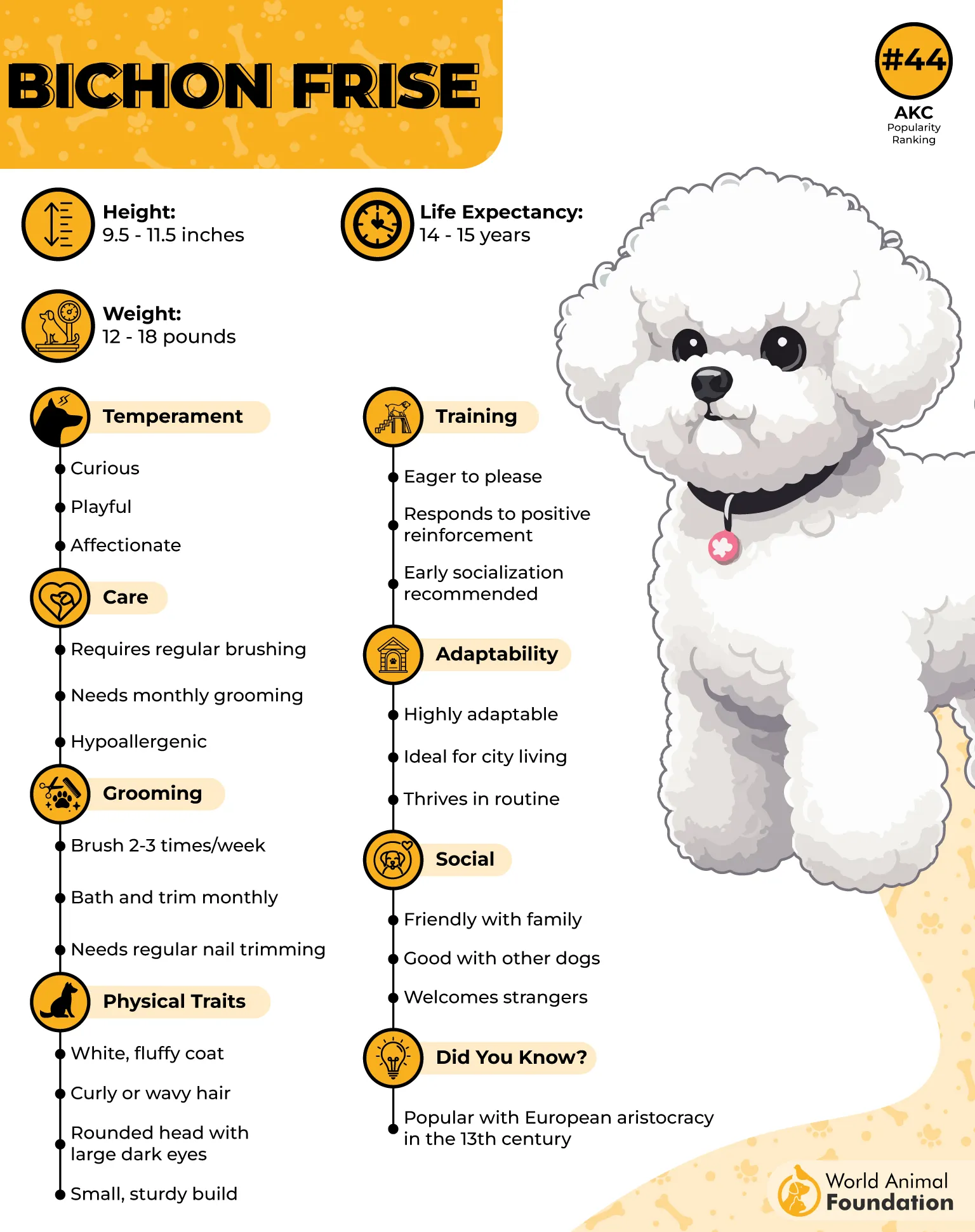
The Bichon Frise is generally a healthy and sturdy little fluffball, but like all breeds, they have some health quirks you should know about. Being aware helps you catch issues early and keep your pup happy and thriving.
Sure, like any dog, they need their annual checkups, but medication is usually an occasional visitor, not a permanent resident. They need some grooming TLC to keep their coat looking their signature fluffy best.
Why they rarely need meds:
Generally strong immune systems with few chronic issues
A playful lifestyle promotes good health and happiness
Easy to groom and care for, reducing stress-related problems
PetMD noted they are often labeled as a “hypoallergenic” breed, but like all dogs—including Bichon Frises—they still carry allergens in their skin, saliva, and urine. However, Bichons may be a suitable choice for some individuals who have dog allergies.
Their playful and energetic nature keeps them moving and fit, and their relatively simple care routine means fewer stress-related health hiccups. Think of them as your cheerful, low-maintenance buddy who rarely needs a pharmacy run.
3. Siberian Husky
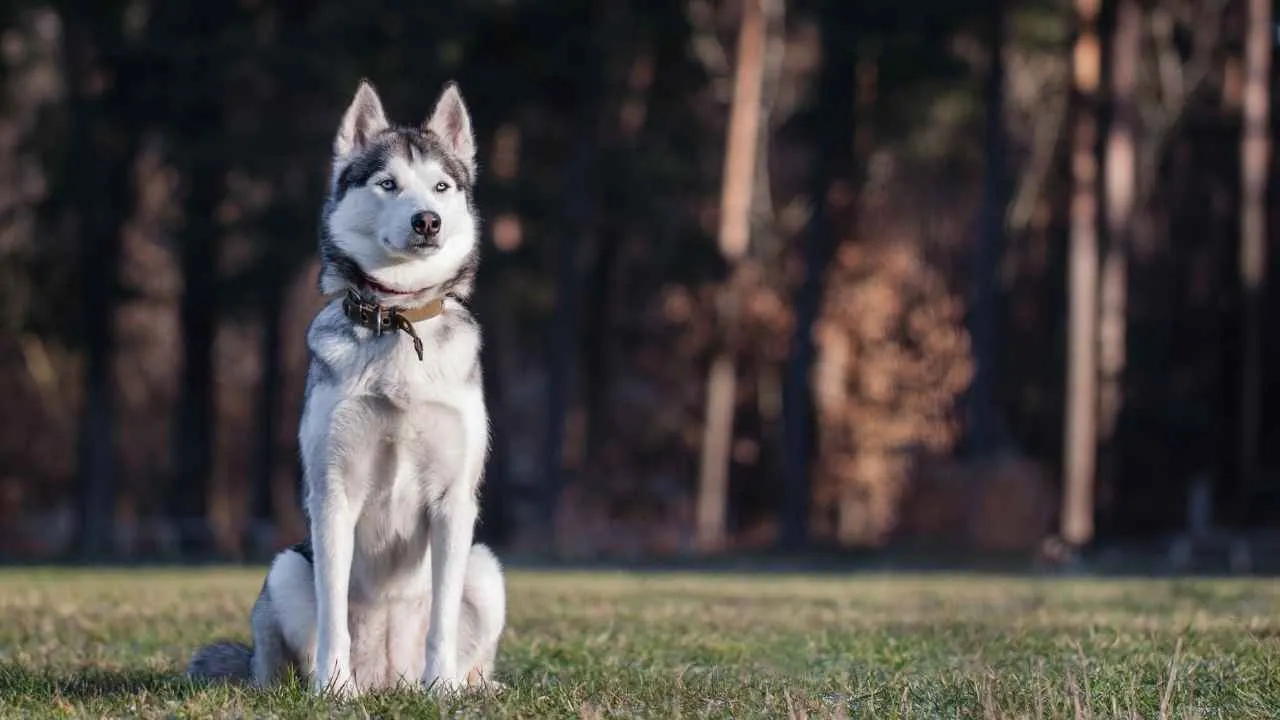
The Siberian Husky looks like it just stepped out of a snow-covered fairytale—and probably brought its own sled. Siberian Huskies are basically the marathon runners of the dog world—built tough and bred to thrive in harsh conditions.
One of their standout features is their wolf-like appearance and piercing eyes, which can be blue, brown, amber, or even one of each (called heterochromia).
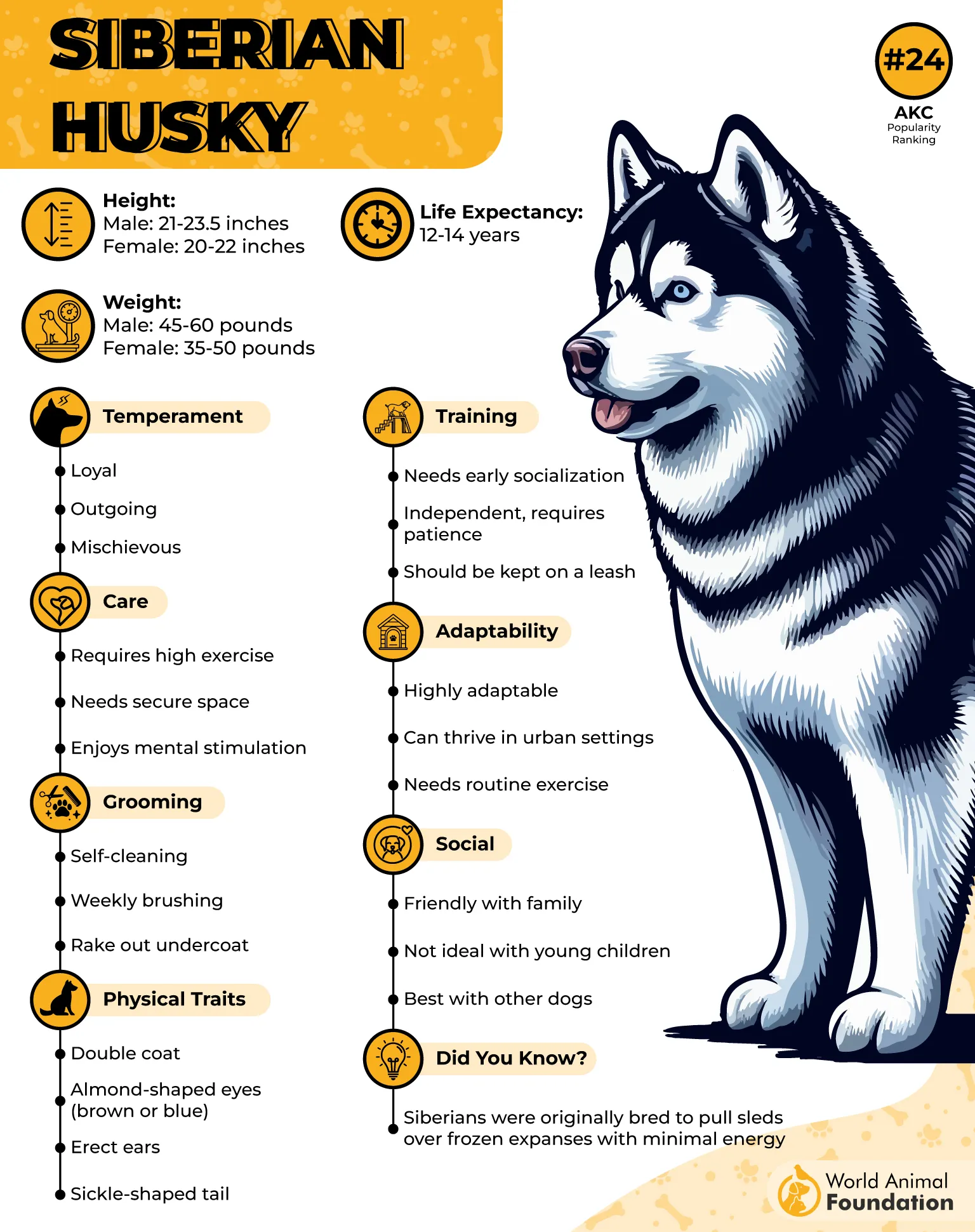
Siberian Huskies are generally sociable and get along well with other dogs and animals. They’re also quite friendly with strangers, which means they don’t make the best guard dogs.
Thanks to their rugged genetics and natural resilience, they tend to dodge many common dog health issues, making vet visits more about vaccines and less about medications, but they are still susceptible to several health issues:
Hip Dysplasia
Eye Problems
Hypothyroidism
Autoimmune Disorders
Why they rarely need meds:
Strong, natural resistance to many illnesses
High-energy lifestyle supports top-notch health
Low incidence of hereditary diseases compared to other breeds
As per Britannica, true to their sled-pulling roots, Huskies are highly active and require at least one to two hours of daily exercise to stay happy and healthy.
These spirited explorers love exercise and fresh air, which keeps their bodies strong and immune systems firing on all cylinders. Just be ready to handle some serious shedding, because healthy Huskies shed like it’s their job.
4. Whippet
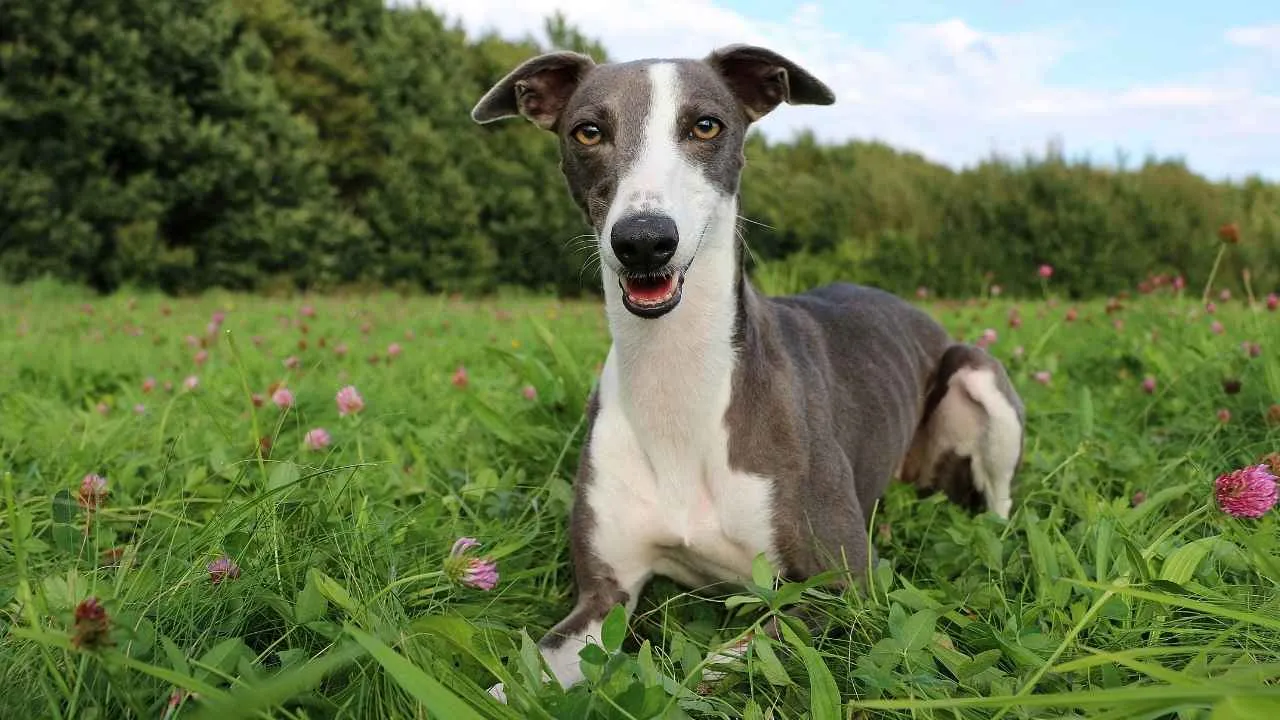
Whippets might look like delicate racecars, but they’re surprisingly robust and generally healthy dogs. These medium-sized sighthounds have a slim, refined frame with long legs, a deep chest, a tucked-up waist, and a gently arched back—all perfectly crafted for sprinting at impressive speeds.
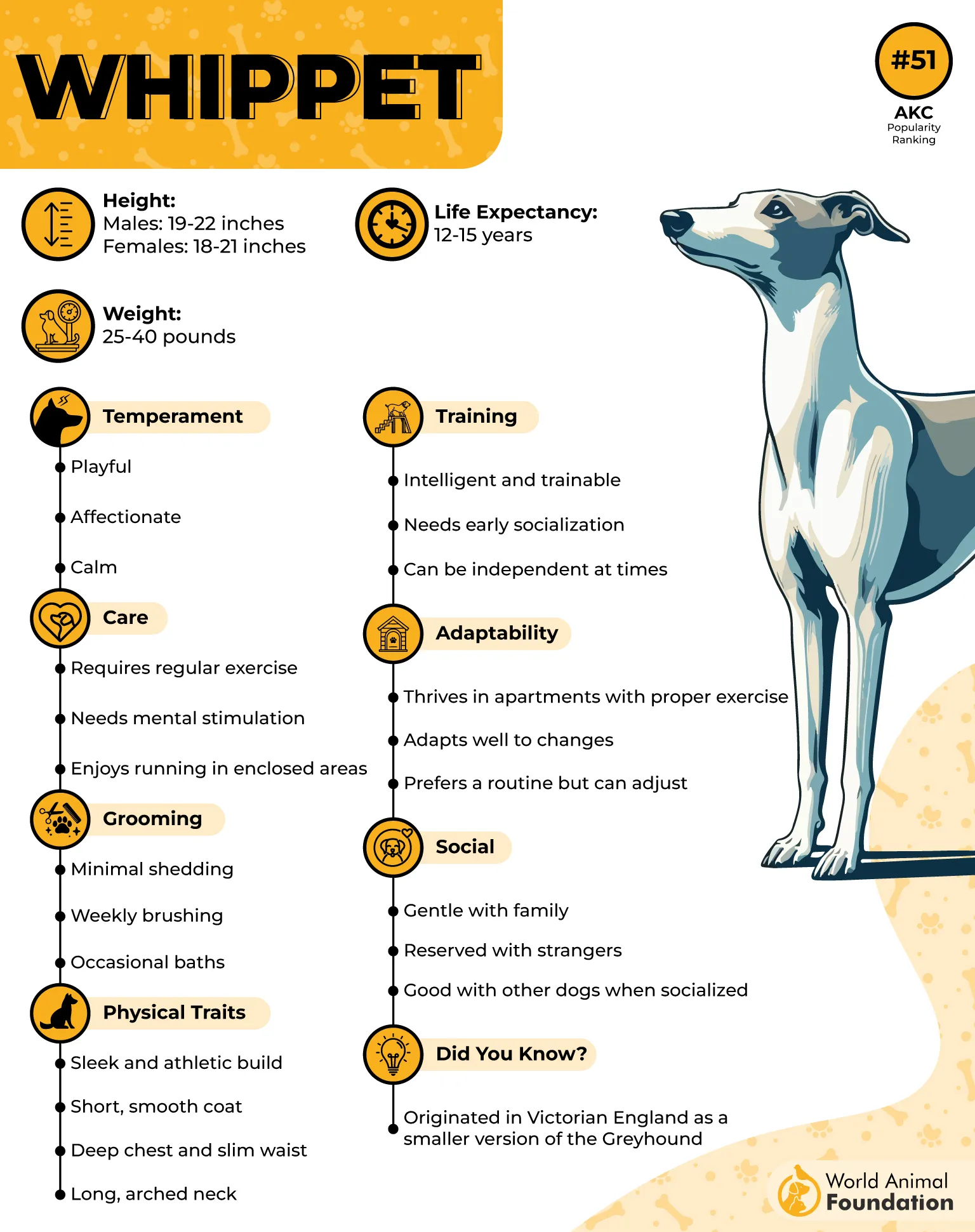
Like Greyhounds, Whippets love a good sprint but are more than happy to lounge on the couch afterward. PDSA noted their moderate size makes them a favorite among first-time dog owners, though their training might take a little patience.
Their slim, athletic build comes with fewer genetic health problems, which means fewer trips to the vet for meds. They’re calm indoors but can sprint like the wind when it’s time to play.
Their low-maintenance health profile pairs well with their easygoing attitude, making them a favorite for owners who want a sporty companion without the frequent vet drama.
Why they rarely need meds:
Fewer breed-specific health issues than many other breeds
An active lifestyle promotes natural wellness
Low-maintenance grooming and care reduce stress-related illness
All Whippets require regular physical and mental stimulation to stay happy and healthy. While they don’t need hours of intense activity, they do enjoy stretching their long legs and having opportunities to explore their surroundings.
5. Border Collie
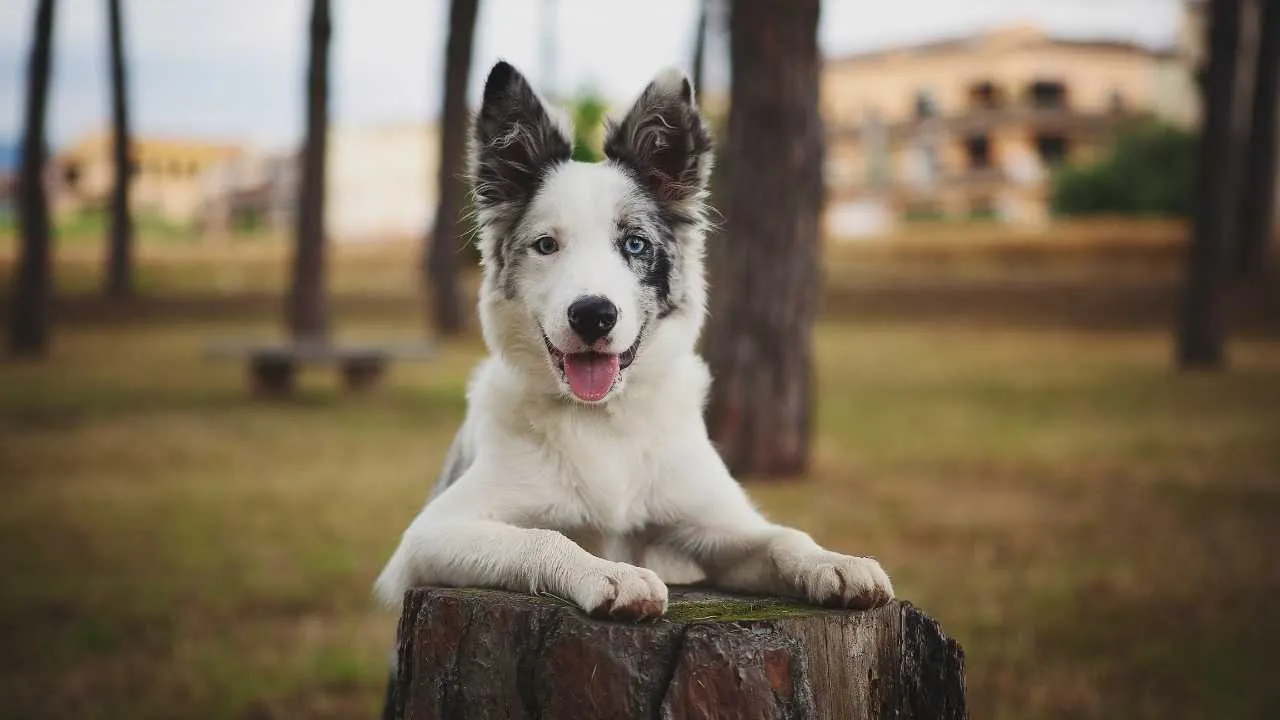
Border Collies are the Einsteins of the dog world—smart, agile, and surprisingly healthy. While many are still hard at work on farms today, they’ve also become beloved family companions thanks to their intelligence and loyalty.
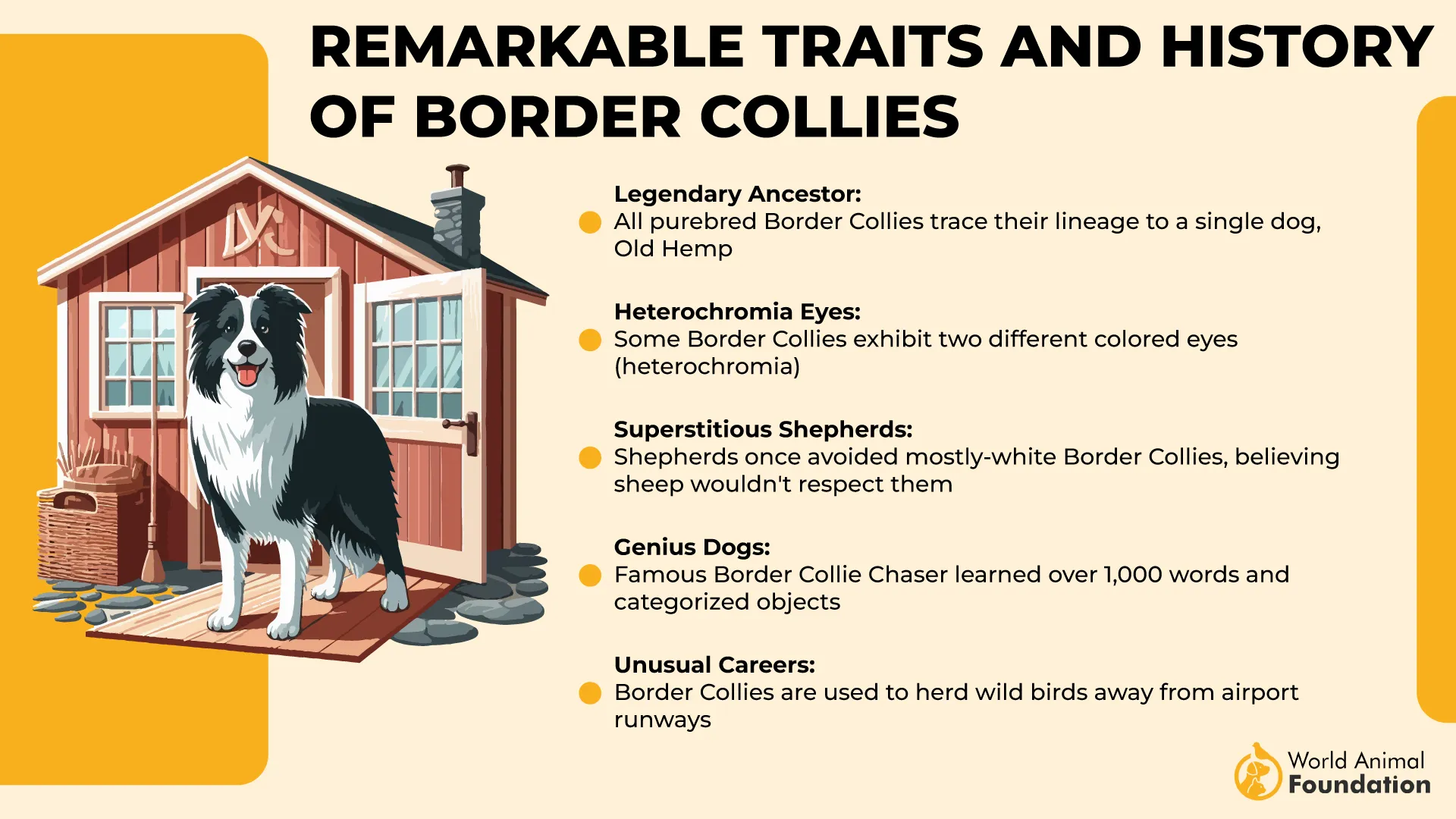
Their face is alert and expressive, with bright, intelligent eyes that practically beam with focus. Eye color varies—brown, blue, or even one of each—and they’re known for their iconic “herding stare,” which they use to control livestock (and sometimes people).
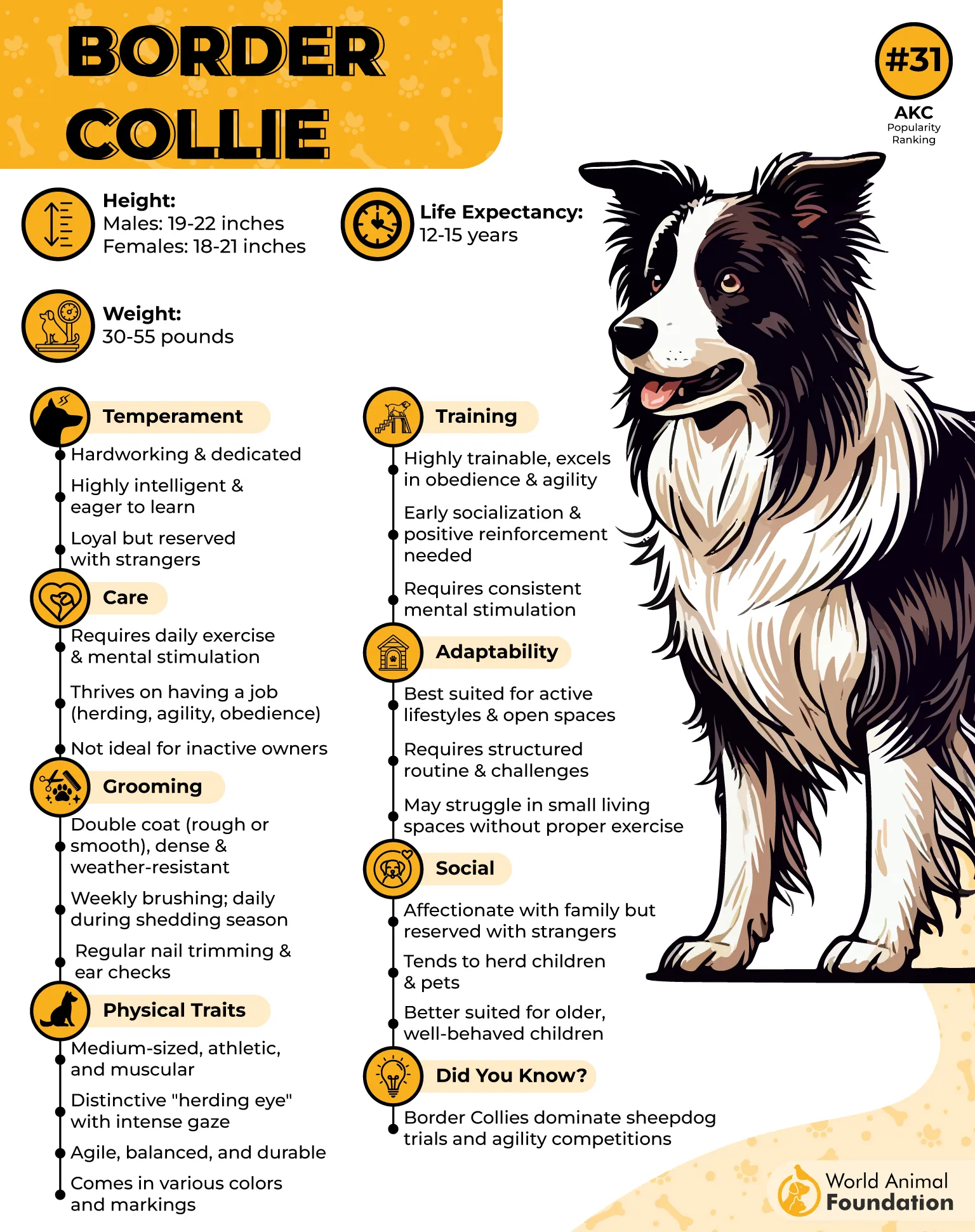
They are generally considered a healthy breed, but like all dogs, they can be prone to some health issues over time. Common concerns include hip dysplasia, epilepsy, and collie eye anomaly. Their active lifestyle and sharp minds keep them in great shape, which means fewer vet visits and less time in the medicine cabinet.
Why they rarely need meds:
High energy and mental stimulation boost overall health
Few hereditary health problems occur when responsibly bred
Regular exercise keeps them fit and happy
Border Collies typically require one to two hours of daily exercise, particularly during their younger years. As they age and begin to experience mobility challenges like arthritis, older Border Collies may only need around 30 minutes of physical activity each day.
Just watch out—they might outsmart you in more ways than one!
6. Chinese Crested
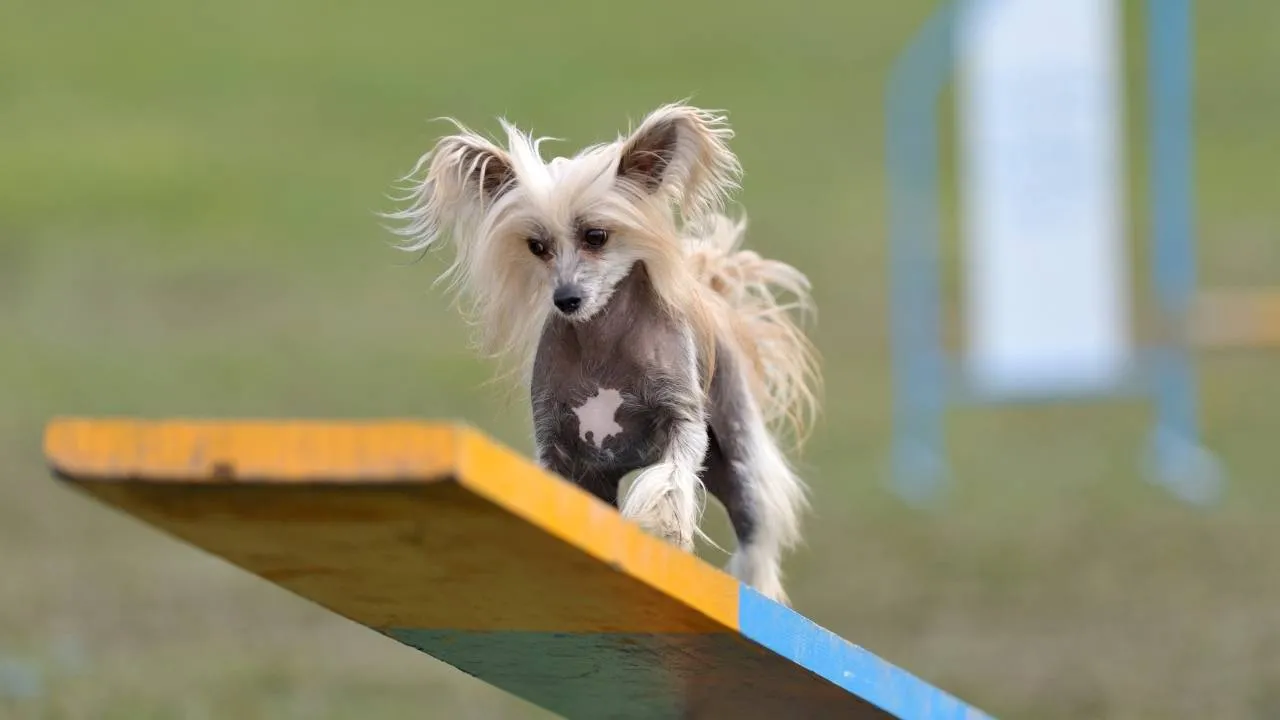
The Chinese Crested has a fun-loving and affectionate personality. They thrive on family attention and are always ready to join in on playtime whenever you’re up for it.
These little dogs are lively and energetic, and they make pretty good watchdogs thanks to their keen awareness of their surroundings. They’re happy to keep an eye on things and alert you if something’s up.
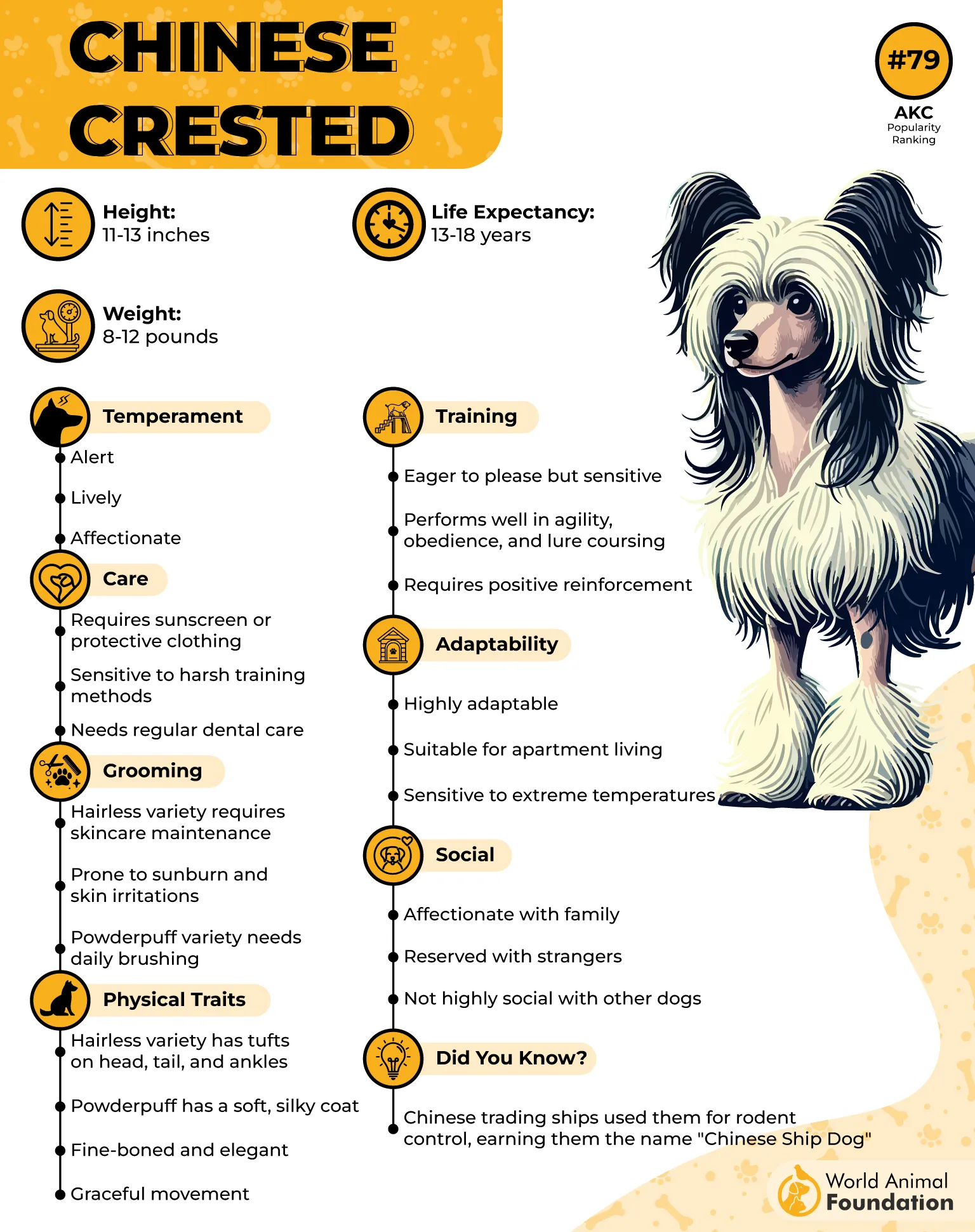
What’s really special about Chinese Cresteds is how in tune they are with their owner’s emotions—they can tell when you’re upset or angry and will be happiest when you’re feeling good too.
Chinese Cresteds might look delicate with their unique hairless or powderpuff coats, but they’re surprisingly hardy little dogs. Thanks to their relatively simple health profiles, they’re known for requiring minimal medical intervention throughout their lives.
Why they rarely need meds:
Minimal hereditary health concerns
Adaptable and resilient with proper care
Low grooming needs reduce skin problems
Being small dogs, they don’t need a lot of exercise to stay healthy. A short daily walk or some playtime in the yard is usually enough to keep them content. They thrive with proper care, a balanced diet, and lots of love — and they bring a splash of style and personality wherever they go. Plus, their low-shedding hairless variety is a bonus for allergy sufferers!
7. Shiba Inu
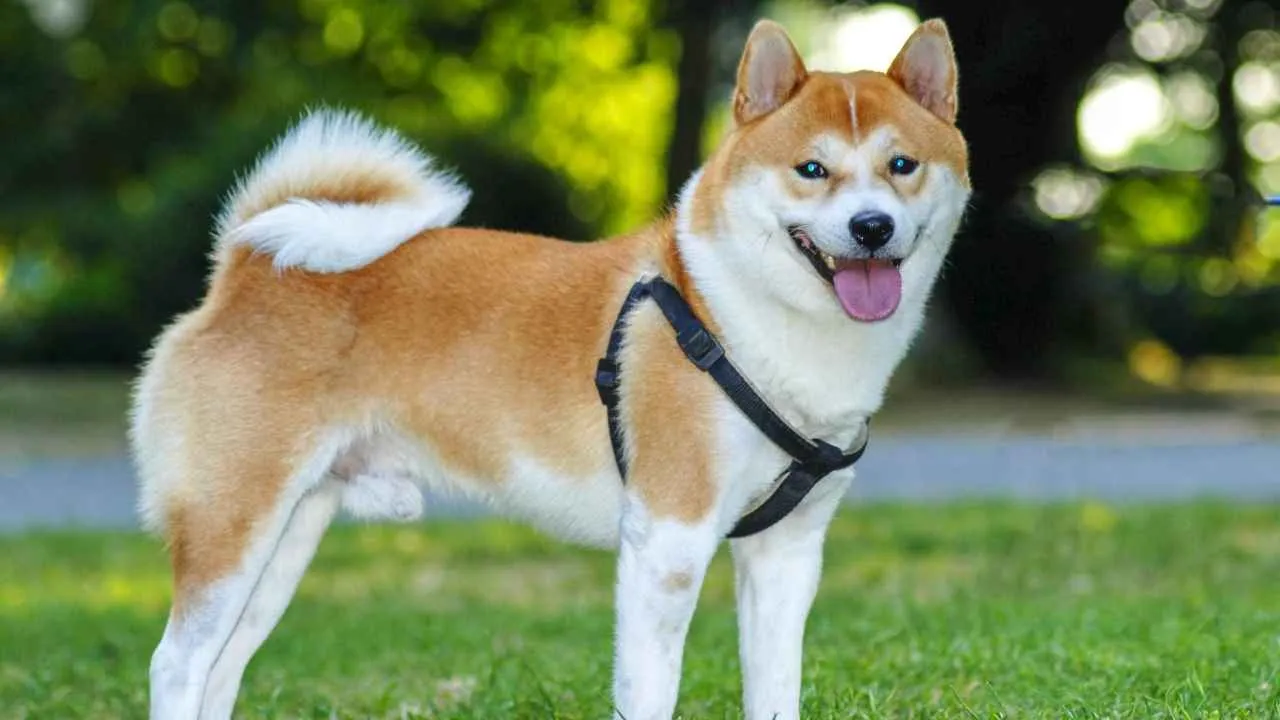
The Shiba Inu is arguably Japan’s most beloved dog breed and made its way to the United States in the 1950s. The Shiba Inu is a small to medium-sized dog with a compact, muscular body that’s both agile and sturdy, perfect for its hunting dog roots.
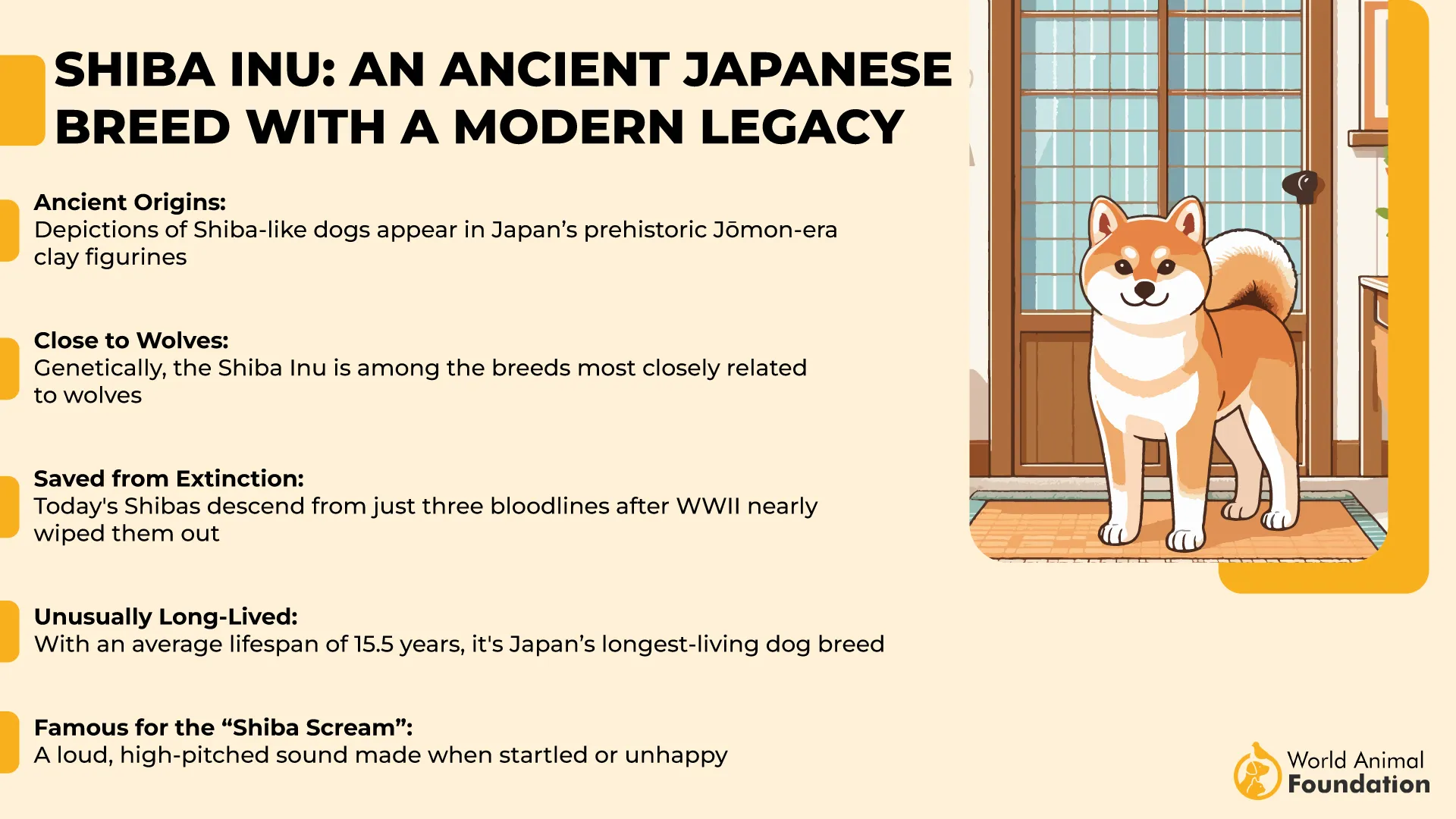
This breed is famous for its fox-like face, with a sharp, pointed muzzle and a confident, alert dog expression. Their triangular ears stand erect and tilt slightly forward, enhancing their keen and curious look.
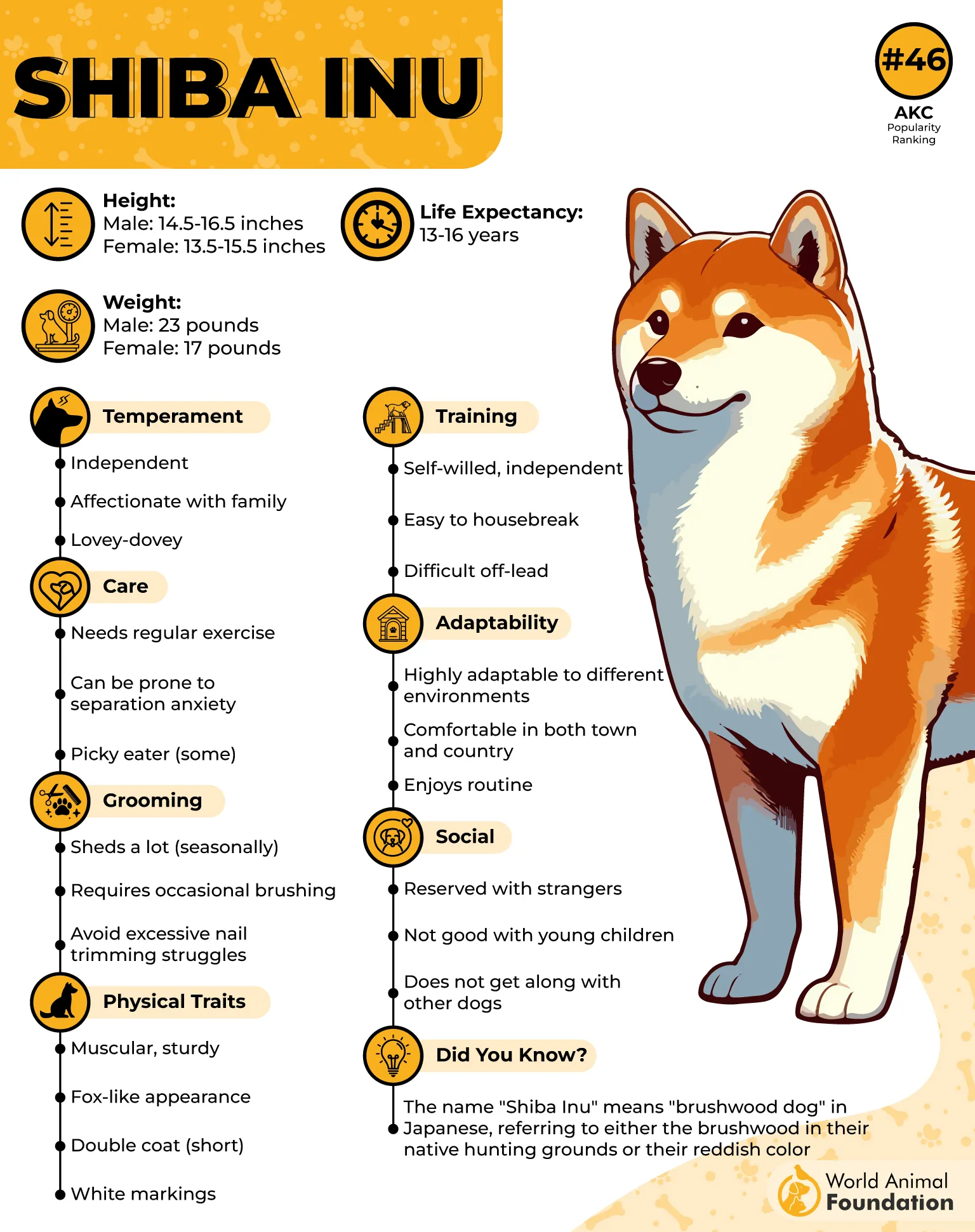
They make excellent watchdogs, alerting you to anything unusual, but they aren’t the best choice for serious protection since some can be quite vocal.
The most common health issue they face is allergies, and some may also experience patellar luxation, which is when the kneecap slips out of place. If you notice your Shiba hopping while holding up a rear leg, it’s a good idea to have a vet take a look.
Why they rarely need meds:
Strong genetic health and low predisposition to chronic illnesses
Independent breed, which means fewer behavioral stress issues
Naturally clean and low-maintenance coat
While affectionate with their families, Shibas can be a bit reserved around strangers and might stand their ground when meeting unfamiliar dogs.
Classified in the nonsporting group, this curious and fairly active dog needs daily exercise—whether that’s through fun games, long walks, or safe off-leash runs in a securely fenced area. Plus, their clean habits and easy grooming keep skin and coat problems at bay.
8. Basenji
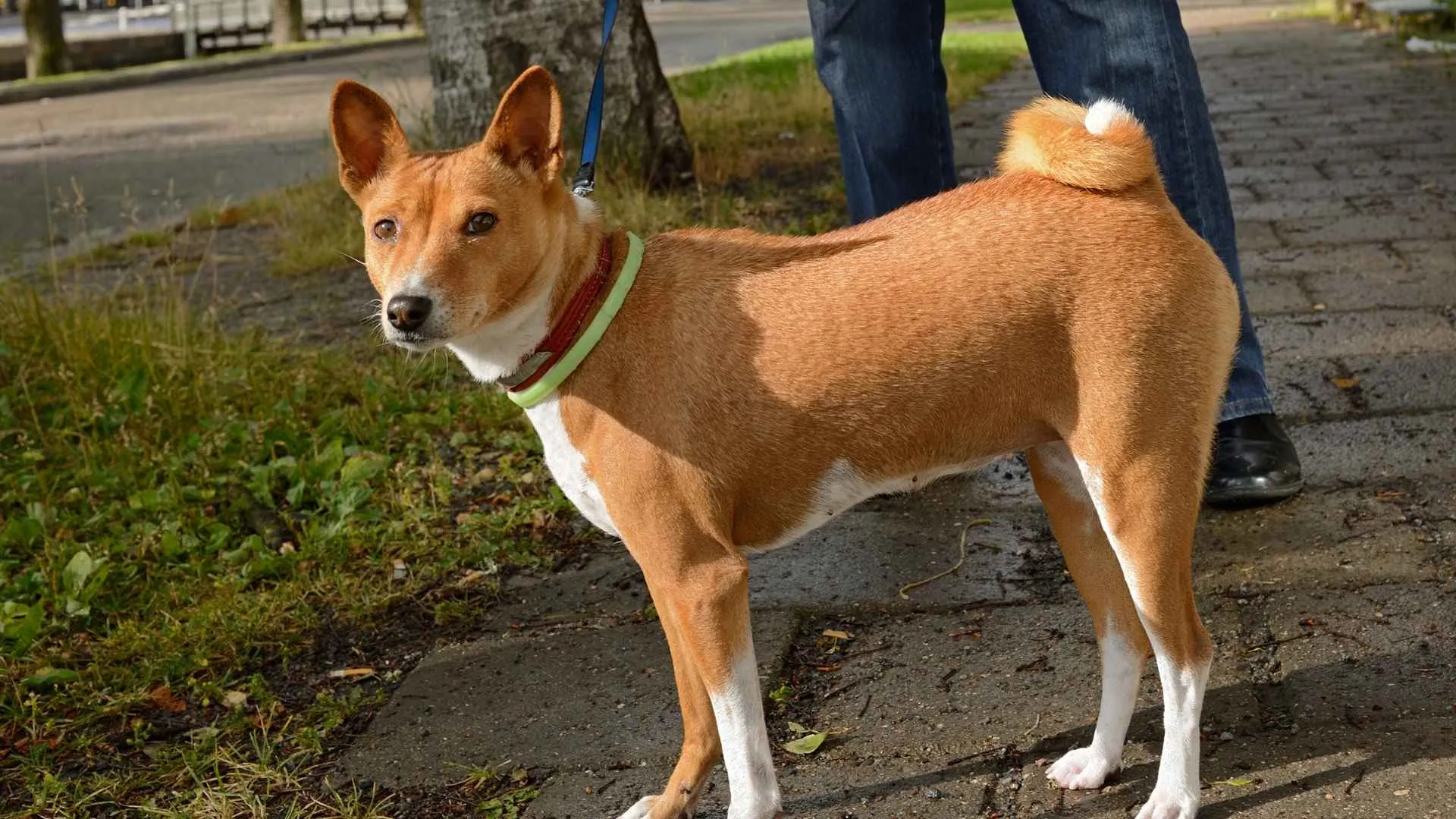
The Basenji is a strikingly elegant dog with a compact, athletic build that speaks to its agility and speed. They are medium-sized and come in a variety of colors, including chestnut red, black, brindle, and tricolor, often with crisp white markings on the feet, chest, and tail tip.
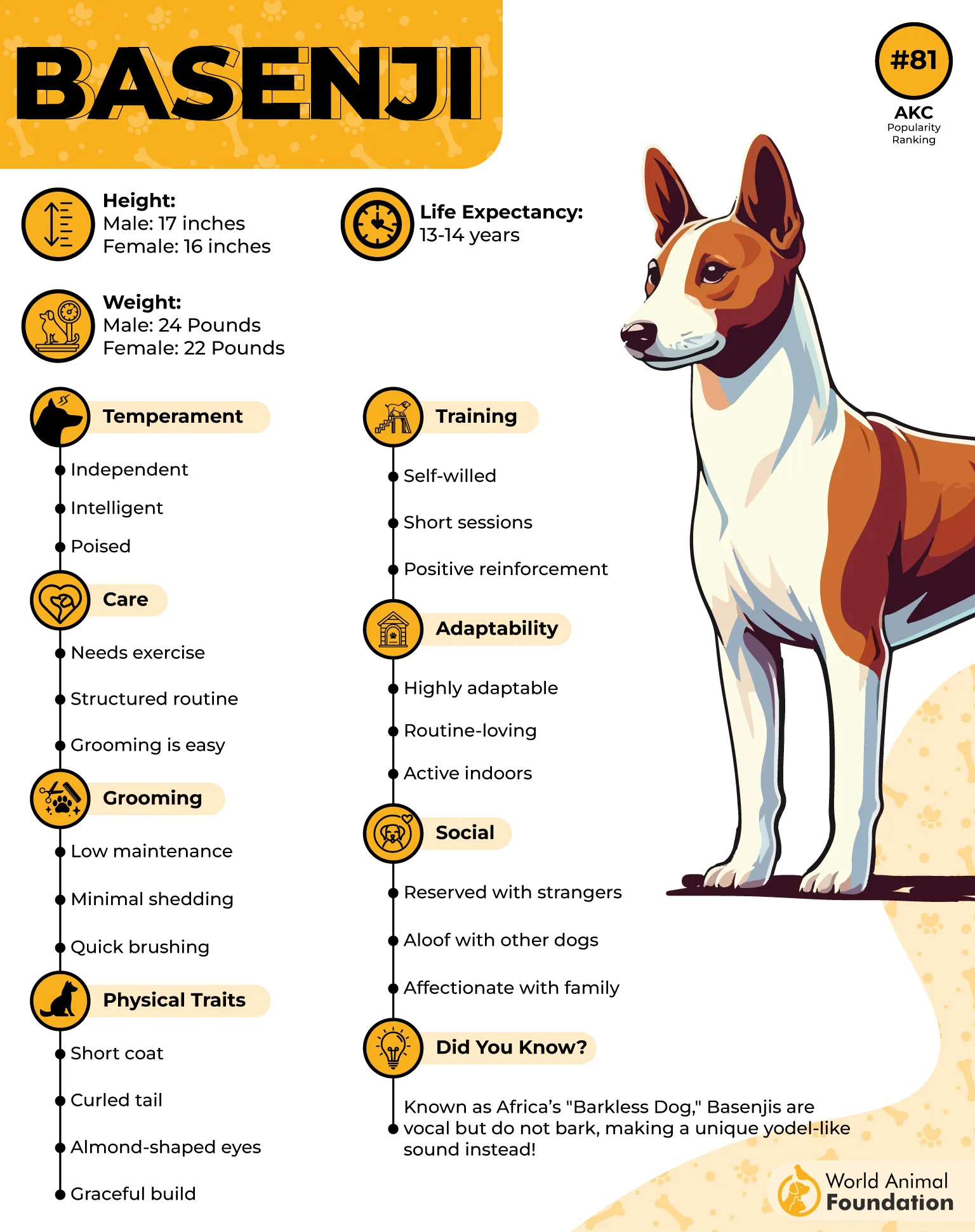
Known as the “barkless dog,” Basenjis speak softly but live loudly—yet they rarely speak to the vet about meds! Their sleek, athletic build and natural vitality make them less prone to many hereditary health problems common in other breeds.
Basenjis are energetic and curious, thriving on activity and mental stimulation. Their minimal grooming needs and good overall health mean less fuss and fewer vet visits for medication.
Why they rarely need meds:
Low incidence of genetic health issues
Clean, easy-care coat reduces skin conditions
High energy levels keep them fit and well
The Basenji’s personality is often compared to that of a cat. They’re typically independent, a bit cautious around strangers, and surprisingly tidy—often grooming themselves just like a feline!
These dogs get bored easily. Without enough exercise and mental stimulation, Basenjis can become quite the troublemakers. Hailing from Africa, they need daily playtime or training sessions to keep their minds and bodies busy.
9. Havanese
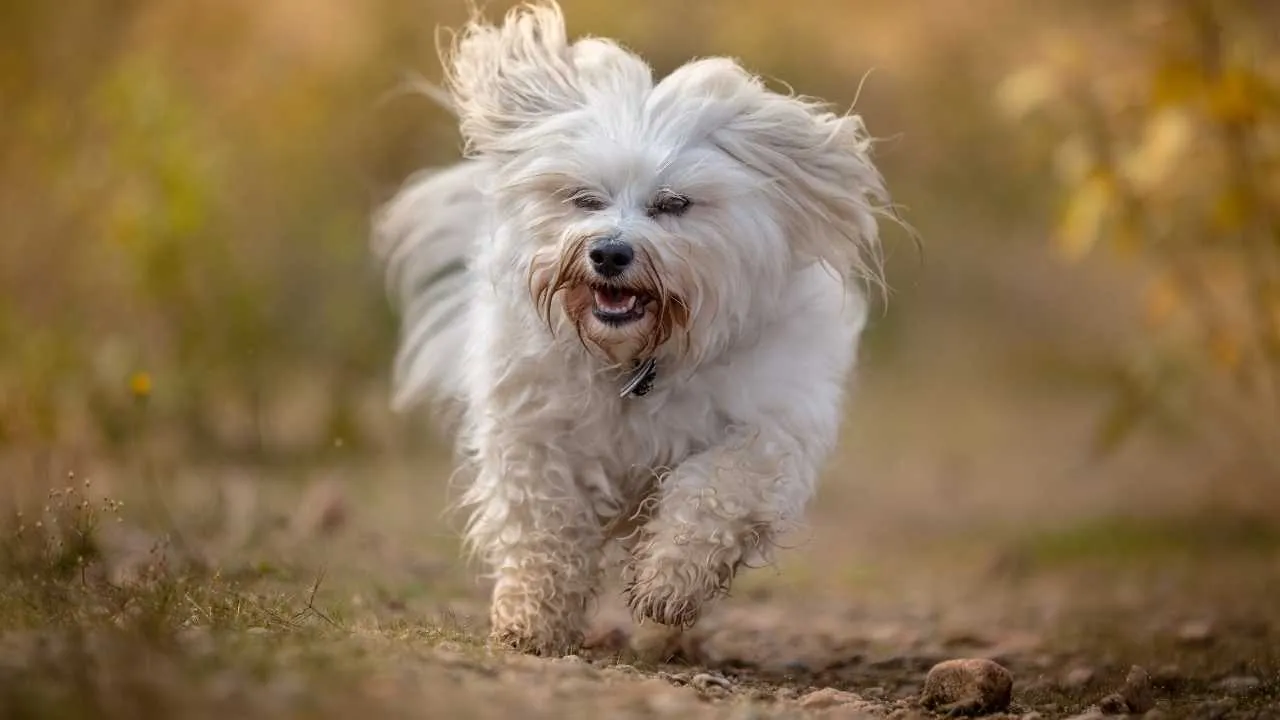
Once known as the Havana Silk Dog or Spanish Silk Poodle, the Havanese is the only dog breed native to Cuba. These pups are intelligent, lively, and quick learners. They can make good watchdogs, but without proper training, they might bark a bit too much.
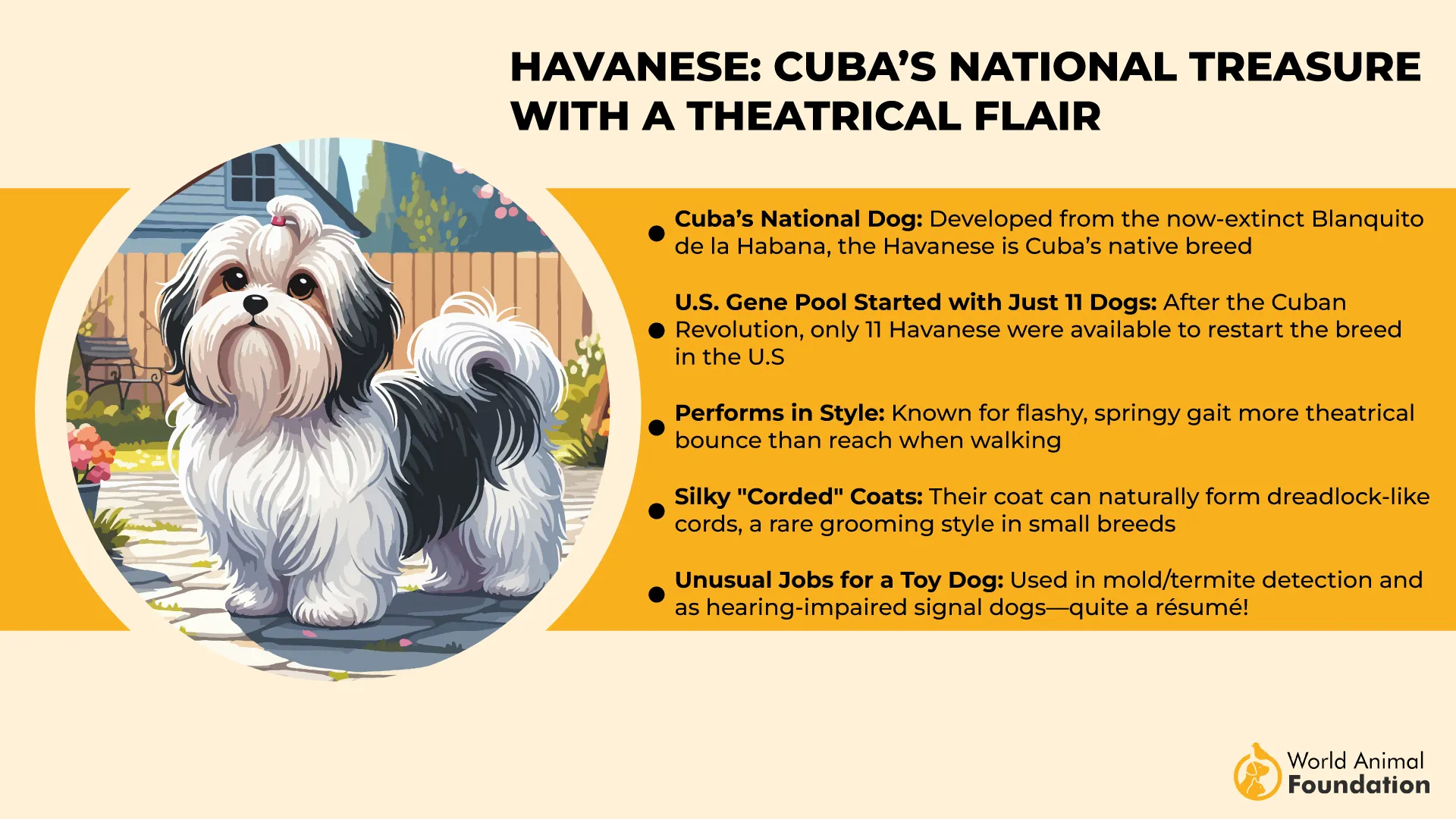
Havanese dogs are the cheerful sidekicks you want by your side—and their generally good health only adds to the joy. They tend to be sturdy little dogs with relatively few health issues, which keeps vet visits light on the prescriptions.
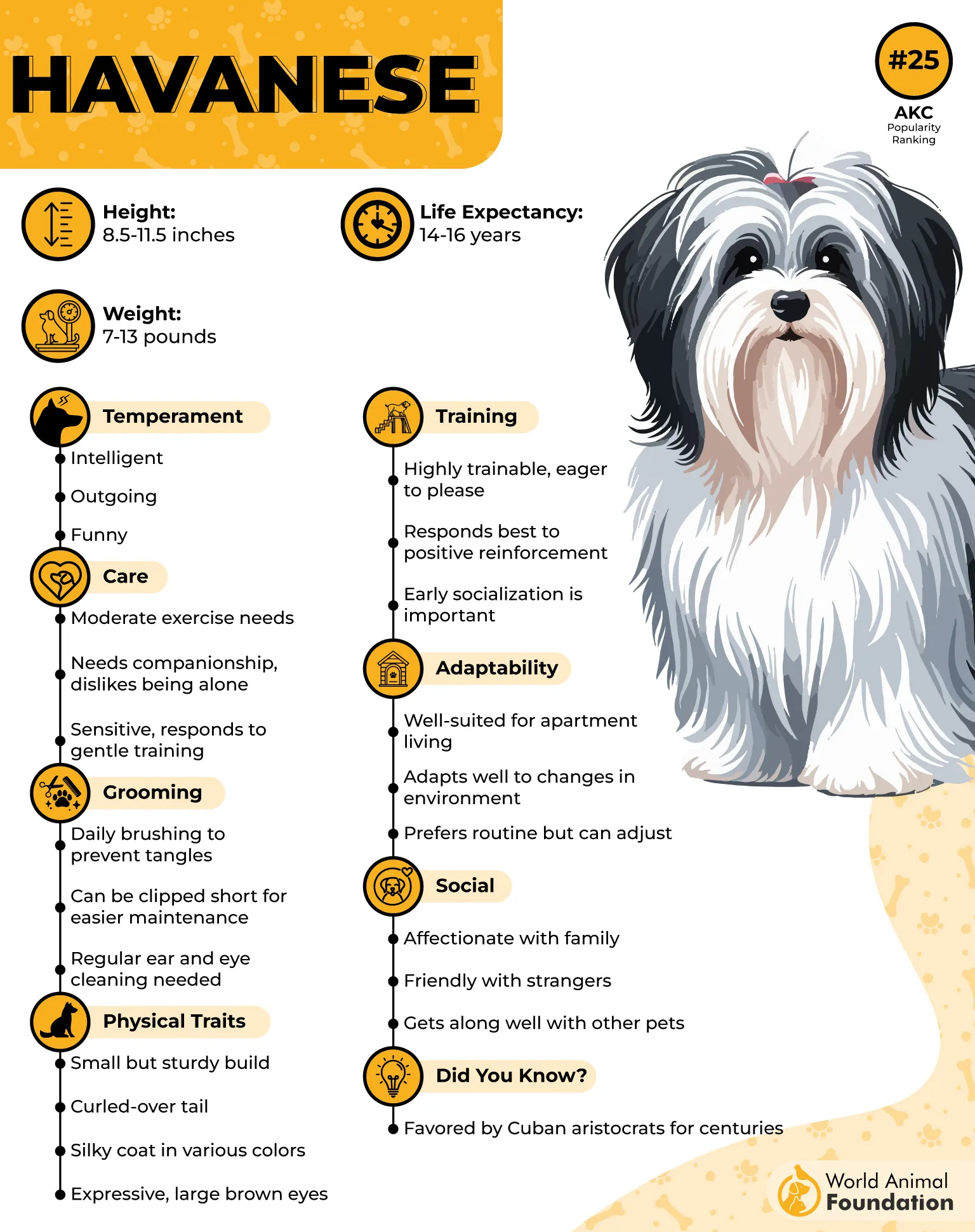
Their playful nature and moderate exercise needs help keep them fit, and their hypoallergenic coats mean fewer allergy-related issues, too. Just a little grooming love keeps them shining bright.
Why they rarely need meds:
Generally healthy with few hereditary diseases
A hypoallergenic coat reduces allergy-related skin problems
A playful, active lifestyle supports overall wellness
Havanese dogs form strong bonds with their humans and don’t like being left alone, so expect this shiny-coated shadow to follow you everywhere!
Conclusion
Among the many dog breeds that exist, some stand out as particularly hardy dogs with long lifespans and minimal need for medication, making them a great choice for pet parents. Other healthiest dog breeds like the Chihuahua, Beagle, Poodles, and the Miniature Schnauzer often stay in top shape with proper veterinary care, a controlled diet, and regular grooming, especially for those with silky hair or thick fur requiring frequent brushing.
While some giant breeds may face more issues, these smaller, often herding dogs are known to avoid major genetic diseases and common problems like ear infections when kept at a healthy weight. With the right food, care, and attention, these dogs offer a great personality, get along with other pets, and stay energetic well into their senior years, bringing health and happiness from puppies to old age.


